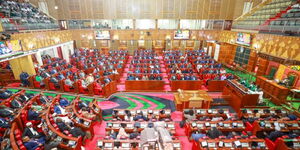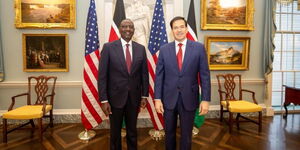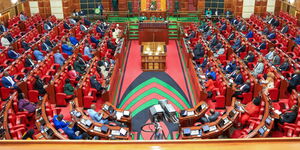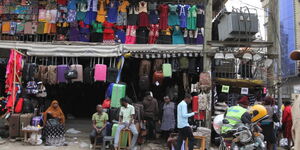Kenyan business owners in Tanzania are set for relief after the government announced that Kenya would be spared from an ongoing ban on 15 business activities conducted by foreigners in Tanzania.
In a statement on Friday, October 3, the State Department of the East African Community revealed that Kenyan business owners are set to be spared after talks between the governments of Kenya and Tanzania.
The result of the dialogue between the two nations meant that Kenyans owning small and medium businesses such as mobile money transfers, repair of mobile phones and electronic devices would be spared from the ban.
Others ensnared in the ban included salon businesses (unless they are conducted in a hotel or for tourism purposes), home, office, and environmental cleanliness, postal and parcel delivery services, tour guiding, establishing and operating radio and TV stations, operating museums and curio shops, brokering in businesses and real estate, and clearing and forwarding services.
“We are pleased to report that through constructive dialogue in the just-concluded bilateral consultation, the two Governments reached an understanding. The United Republic of Tanzania reported that so far, no Kenyan business has been affected by the order and further reassured that no Kenyan business will be affected even in the future,” the statement read.
“Kenyans engaging in legitimate business activities in the United Republic of Tanzania are therefore assured that they should continue to run their businesses without fear of interference,” it added.
The ban, announced in July by Tanzania's Minister for Industry and Trade, Selemani Saidi Jafo, foreigners were also banned from farming, crop purchasing operations, ownership or operation of gambling machines or devices, except within casinos, and ownership and operation of micro and small industries.
A foreigner found to be conducting these businesses would be liable to a fine of up to Tsh10 million (Ksh502,927) and a prison term not exceeding six months.
Further, any Tanzanian citizen found helping foreigners conduct such businesses will be convicted and slapped with a three-month prison sentence, in addition to a fine of Tsh5 million (Ksh251,463).
However, Jefo noted that foreigners holding valid licences to conduct banned businesses would be free to continue their commercial activities until their licences expired.
The ban sparked uproar, with Kenyans based in Tanzania faulting Suluhu for the untimely nature of the ban. They argued it would bring massive revenue losses, lead to job cuts and impact commercial activities in Tanzania.
Also, the ban came at a time when there were tensions between Kenya and Tanzania, further fuelling relations between the two neighbouring countries.












